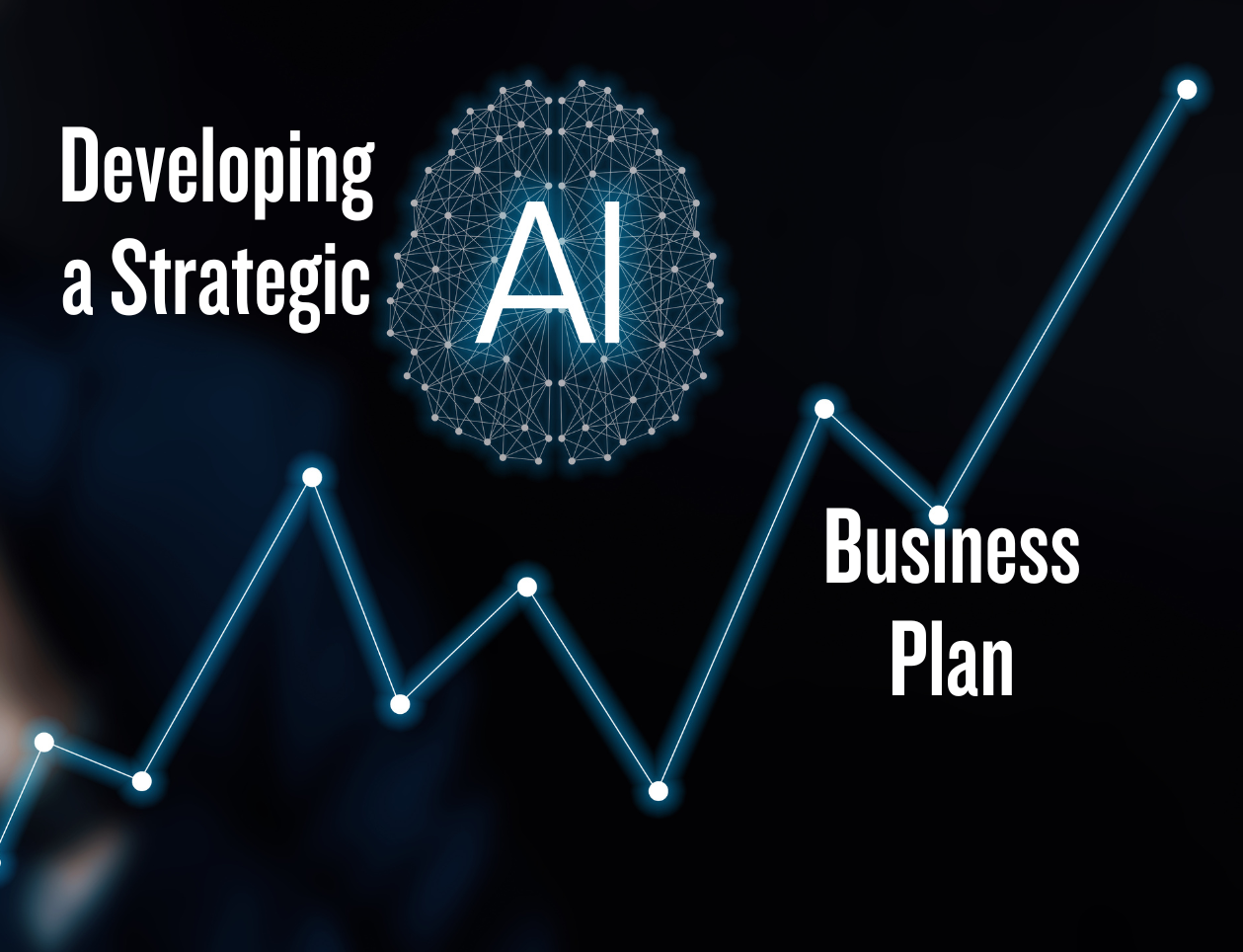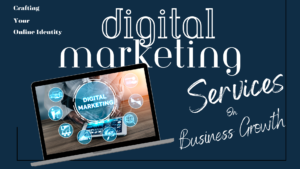Long-term success in the quickly changing corporate environment of today depends on staying ahead of the curve. Artificial Intelligence is a potent technology that corporations can use to accomplish this (AI). Through the development of a successful AI business plan, companies can open up a world of possibilities to boost productivity, improve customer satisfaction, obtain insightful knowledge, and eventually spur growth.
Overview of Business Strategy
Let’s first develop a shared understanding of corporate strategy before diving into the world of AI. A business plan is, in essence, a road map that describes the objectives of a firm and how to get there. It has a number of components, including values, mission, vision, and particular goals. A clear business plan serves as a road map, ensuring that every move and choice is made with the organization’s ideal future state in mind.
Create your AI business plan in consultation with sector specialists.
AI’s Revolutionary Potential in Business
Artificial Intelligence, which was formerly limited to science fiction, has become a powerful reality with several applications in different business fields. It is a game-changer for businesses looking to streamline operations, obtain a competitive edge, and provide outstanding value to their clients because of its capacity to analyze and learn from massive volumes of data, generate predictions, and automate jobs.
Here’s an example of how AI may transform various facets of a business:
Simplifying Procedures and Operations:
- Automation: AI can free up human resources for higher-level jobs like strategic planning and original problem-solving by automating monotonous and time-consuming tasks.
- Data-driven decision-making: Artificial intelligence (AI) can analyze enormous volumes of data and offer insightful analyses that enable organizations to allocate resources, manage inventories, and optimize their supply chains.
- Enhanced productivity and shorter turnaround times are possible with AI-powered solutions that can identify bottlenecks, optimize procedures, and streamline workflows.
Improving the Experience for Customers:
- Customized interactions and suggestions: Artificial intelligence (AI) may evaluate consumer data to comprehend preferences and behavior, allowing companies to offer specialized customer care, focused marketing initiatives, and customized product recommendations.
- Proactive customer care and support: AI-powered chatbots and virtual assistants may provide round-the-clock assistance, respond to often asked queries, and handle straightforward problems, increasing client happiness and cutting down on wait times.
- Automated chatbots and virtual assistants: These AI-driven devices may respond to routine client questions, offer round-the-clock assistance, and refer more complicated cases to human representatives, all while providing a quick and easy customer care experience.
AI’s Key to Unlocking Business Potential
Beyond improving customer satisfaction and expediting processes, AI provides priceless advantages for realizing a company’s full potential.
Gaining Business Insights:
- Predictive analytics and forecasting: Artificial intelligence (AI) models are able to foresee future events, like sales numbers, client demand, and possible dangers, by analyzing past data and market trends. This makes it possible for companies to allocate resources, develop new products, and implement data-driven marketing tactics.
- Market research and customer behavior analysis: AI is capable of delving deeper into consumer preferences, market trends, and rival strategies by analyzing massive datasets from a variety of sources, such as social media interactions, website activities, and customer reviews. In order to better serve customers and remain ahead of the curve, this enables firms to customize their products and marketing initiatives.
- Risk management and fraud detection: Because AI algorithms are so good at finding patterns and abnormalities in data, they are perfect for controlling financial risks, keeping sensitive data secure, and spotting fraudulent activity.
Innovation and Product Development:
- Design optimization and the creation of original content: AI can help with product design by evaluating consumer information and preferences to make goods that appeal to the intended market. In order to improve customer engagement and brand storytelling, AI-powered solutions can also produce creative content, including product descriptions, marketing materials, and even music.
- Analysis of market trends and consumer data to uncover new product opportunities and customize current products to appeal to niche markets are two uses of artificial intelligence (AI). This makes it possible for companies to outperform their rivals and provide goods that satisfy the always changing wants of their clientele.
- Better performance and quality of products: AI can be used to streamline manufacturing procedures, spot possible flaws, and guarantee constant product quality. AI is also capable of analyzing usage data and customer input to pinpoint problem areas and continuously improve the performance of products.
AI is a tremendous technology with enormous potential to change enterprises; it is not magic. Organizations may reap a host of advantages by incorporating AI into a clearly defined business plan, including better customer satisfaction, cost reductions, and efficiency gains.
Can AI Write a Business Plan?
The short answer is that AI is not yet capable of creating a thorough business plan from scratch. Even though AI technology has come a long way, it still lacks the analytical abilities, strategic planning, and creative problem-solving capabilities needed to create a business plan that is both thorough and successful.
Nonetheless, AI can continue to be a useful tool in the process of business planning by helping with particular duties:
- Market research and competition analysis: AI technologies are able to collect and examine enormous volumes of information about consumer preferences, competitive tactics, and market trends. The creation of your business strategy may then be guided by this information, ensuring that your products and services successfully meet the needs of your target market and the expectations of the market.
As an illustration, consider this: Let’s say you want to open an internet-based clothes business. AI solutions are capable of analyzing data on pricing techniques used by competitors, popular styles within your target market, and current fashion trends. Your business plan’s product selection, pricing strategy, and marketing approach can all be improved with the help of this information.
- Financial forecasting and projections: AI models can be used to forecast future income, expenses, and profitability by analyzing historical data and market patterns. Making accurate financial estimates for your business plan is essential if you want to attract investors or secure funding. You may do this by using the information provided.
To forecast your future sales growth and profitability, for example, AI-powered financial planning systems can examine your previous sales data, market trends, and competitor data. Afterwards, you may use this data to make financial estimates that show your business plan’s prospective profitability.
- Producing presentations and reports: Artificial intelligence (AI) tools can help with data visualization and report generation that you can use in your business plan. This will guarantee that your idea is presented in a clear, succinct, and eye-catching way while also saving you time and work.
Consider employing an AI technology to create graphs and charts that automatically illustrate your sales forecasts, financial estimates, and results from market research. This can greatly improve your company plan’s professionalism and clarity.
Artificial intelligence (AI) can greatly expedite and improve some parts of the planning process, but it cannot completely replace the human element that is essential to creating a successful business plan. You may free up time and resources to concentrate on the strategic elements of planning and creating an effective business strategy by using AI as a potent tool.

Create your AI business plan in consultation with sector specialists.
How Can AI Improve Your Business?
After examining the diverse applications of AI in various business areas, let’s take a closer look at the observable advantages of putting an AI business plan into practice:
Enhanced Productivity and Efficiency:
Automation: Your human workforce can concentrate on higher-level jobs that call for creativity, critical thinking, and strategic decision-making by using AI to automate repetitive chores. As a result, resources are allocated more effectively, and overall production is greatly increased.
Streamlined processes: AI is able to locate inefficiencies and bottlenecks in your workflows and make recommendations for possible optimization fixes. This results in more efficient processes, quicker response times, and ultimately higher productivity throughout your company.
According to a McKinsey Global Institute report, by 2030, AI might boost global economy productivity by up to 1.4% yearly.
Improvements in Decision-Making
- Data-driven insights: Artificial intelligence (AI) facilitates data-driven decision-making by evaluating enormous volumes of data and offering insightful information that people might overlook. This enables you to base decisions on current data and trends rather than hunches or speculation.
- Risk and opportunity identification: AI algorithms are capable of analyzing large, complicated data sets to find patterns and trends that people might not see right away. This enables you to foresee possible dangers and find untapped sources of innovation and growth.
To forecast future sales, an AI-powered sales forecasting tool, for instance, can examine client information, purchasing tendencies, and market trends. With this data, you can create focused marketing efforts, manage inventories more effectively, and allocate resources wisely.
Enhanced Contentment with Clients:
- Individualized encounters: AI may evaluate consumer information and preferences to tailor your products and communications to them. Increased client happiness, brand advocacy, and loyalty may result from this.
- Proactive customer care: AI-driven chatbots and virtual assistants may offer round-the-clock assistance, respond to commonly requested queries, and handle straightforward problems, greatly enhancing the customer experience and satisfaction.
According to a Salesforce study, 76% of consumers anticipate that businesses would employ technology to customize their interactions. Businesses can enhance their client interactions and foster enduring loyalty by utilizing artificial intelligence (AI) for customisation.
Lower Expenses and Dangers:
- Automated: Artificial intelligence (AI) can dramatically lower labor costs by automating repetitive and manual procedures.
- Better risk management: Artificial Intelligence (AI) can be used to recognize and reduce possible risks, including fraud, cyberthreats, and inefficiencies in operations. Significant cost reductions and enhanced financial performance may result from this.
According to a PricewaterhouseCoopers analysis, artificial intelligence might increase global economic value by up to $15.7 trillion by 2030. Businesses may streamline processes, cut expenses, and seize new chances for expansion and profit by judiciously utilizing AI.
AI tools for Your Business Plan Stockpile
Artificial Intelligence (AI) has a plethora of tools and platforms available to meet the varying needs of different enterprises. Here are a few instances:
- Customer relationship management (CRM) software driven by AI: These solutions use AI to better manage data and client interactions. They may free up your sales force to concentrate on developing connections and completing deals by automating processes like lead scoring, customer segmentation, and customized email marketing campaigns.
- AI-enabled marketing automation solutions: These technologies let you automate a range of marketing chores, including content production, social media scheduling, and email marketing campaigns. Additionally, they can target the proper audience, optimize your campaigns for better outcomes, and customize your marketing messages using AI.
- Platforms for business intelligence (BI) with AI features: These give you a thorough overview of your company’s data so you may spot patterns, obtain understanding, and come to wise judgments. Predictive analytics and anomaly detection are two AI-powered capabilities that can assist you in foreseeing possible problems and opportunities before they arise.
- Chatbots and virtual assistants driven by AI: These devices can manage routine client enquiries, offer round-the-clock assistance, set up appointments, and respond to often asked queries. Providing quick and easy self-service options can greatly enhance the client experience.
This is but a small sample of the enormous number of AI tools that are out there. The particular tools you select will rely on the objectives and demands of your particular organization. But you may gain a host of advantages by integrating these potent tools into your AI business plan, from better customer satisfaction and cost savings to higher efficiency and decision-making.
Recall that AI is not a panacea. Careful planning, integration with your current systems, and continuous monitoring and assessment are essential to its success. Through thoughtful and conscientious application of AI, you may leverage its potential to revolutionize your enterprise and attain outstanding outcomes.
Conclusion: Using AI to Welcome the Future
Business is definitely going to be more and more integrated with AI as it develops. Businesses can open up a world of potential by developing a successful AI business plan and utilizing the capabilities of AI technologies, including:
- Streamline processes and procedures to increase effectiveness and output.
- Utilize data to gain insightful knowledge that will help you make well-informed judgments.
- Customize communications and experiences with customers to boost their happiness and loyalty.
- Cut expenses and lower hazards related to human mistake and manual processes.
- Encourage creativity to open up new opportunities for expansion and financial success.
Even while the transition to an AI-powered future may seem overwhelming, your company can be set up for long-term success by starting with the development of a strong AI business strategy. Recall that AI is an effective tool, not a substitute for human creativity. You can improve your skills, empower your workers, and steer your company toward a better future by judiciously and strategically implementing AI.
Create your AI business plan in consultation with sector specialists.







